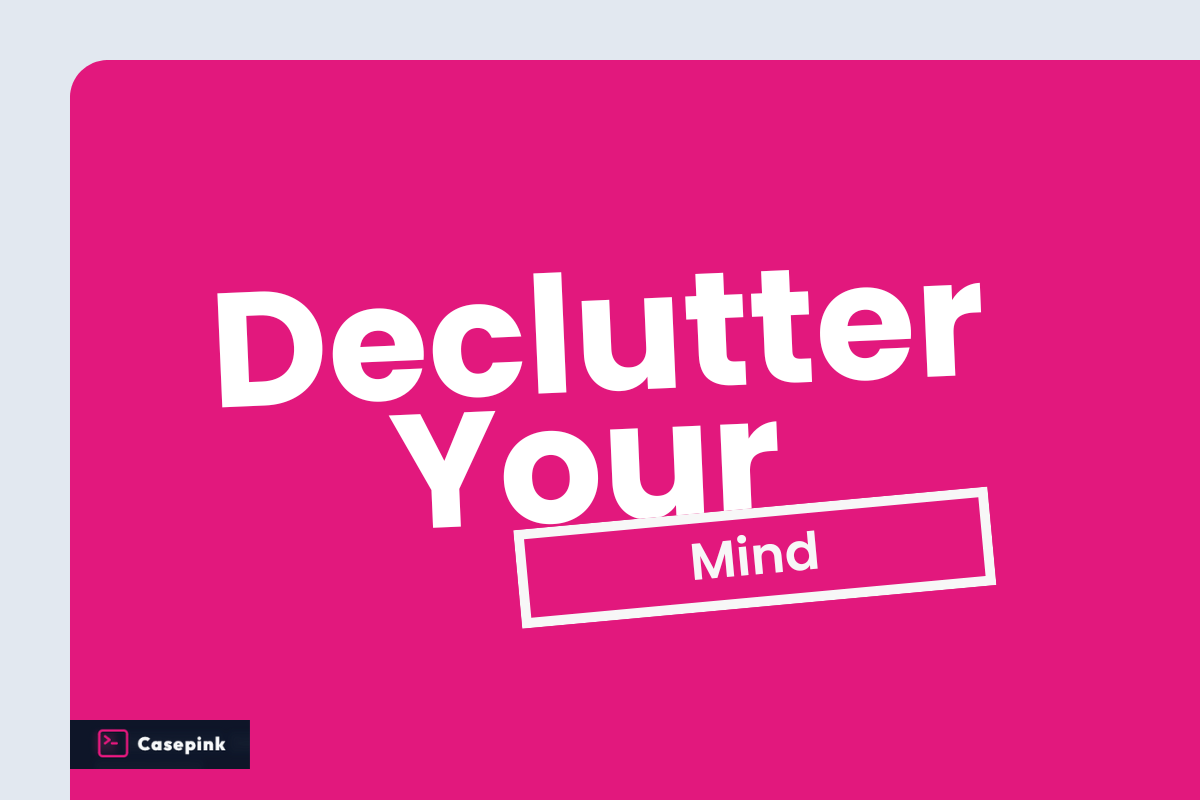
We often declutter our homes, inboxes, and schedules—but what about our thoughts? A cluttered mind creates confusion, stress, and inaction.
Why Mental Organization Matters
Mental clutter manifests as:
- Racing thoughts
- Forgetfulness
- Overthinking
- Decision fatigue
Your mind, like your workspace, needs structure to function at its best.
Techniques to Declutter Your Mind
1. Do a Daily Brain Dump
At the start or end of each day, jot down everything on your mind—tasks, ideas, worries. Let your thoughts land somewhere safe.
2. Use Categorization
Group your thoughts into actionable categories:
- “To Do”
- “To Decide”
- “To Delegate”
- “To Let Go”
Tools like CasePink allow you to create digital mind spaces that mimic this process.
3. Practice Mindful Transitions
Take 2 minutes between meetings or tasks to reset:
- Close your eyes
- Breathe deeply
- Mentally release the previous activity
It improves focus for what’s next.
4. Simplify Decisions
Reduce options. Create templates or routines where possible (e.g., meal planning, outfits, workout times). Less friction means less drain.
Maintain Mental Space
- Get 7–8 hours of sleep
- Take regular movement breaks
- Journal or reflect weekly
- Use a single dashboard to track life areas (like CasePink offers)
Final Word
Mental clarity isn’t just a mindset—it’s a system. With the right tools and routines, you can create space for what matters most.
Decluttering your mind is the first step toward an organized, intentional life.